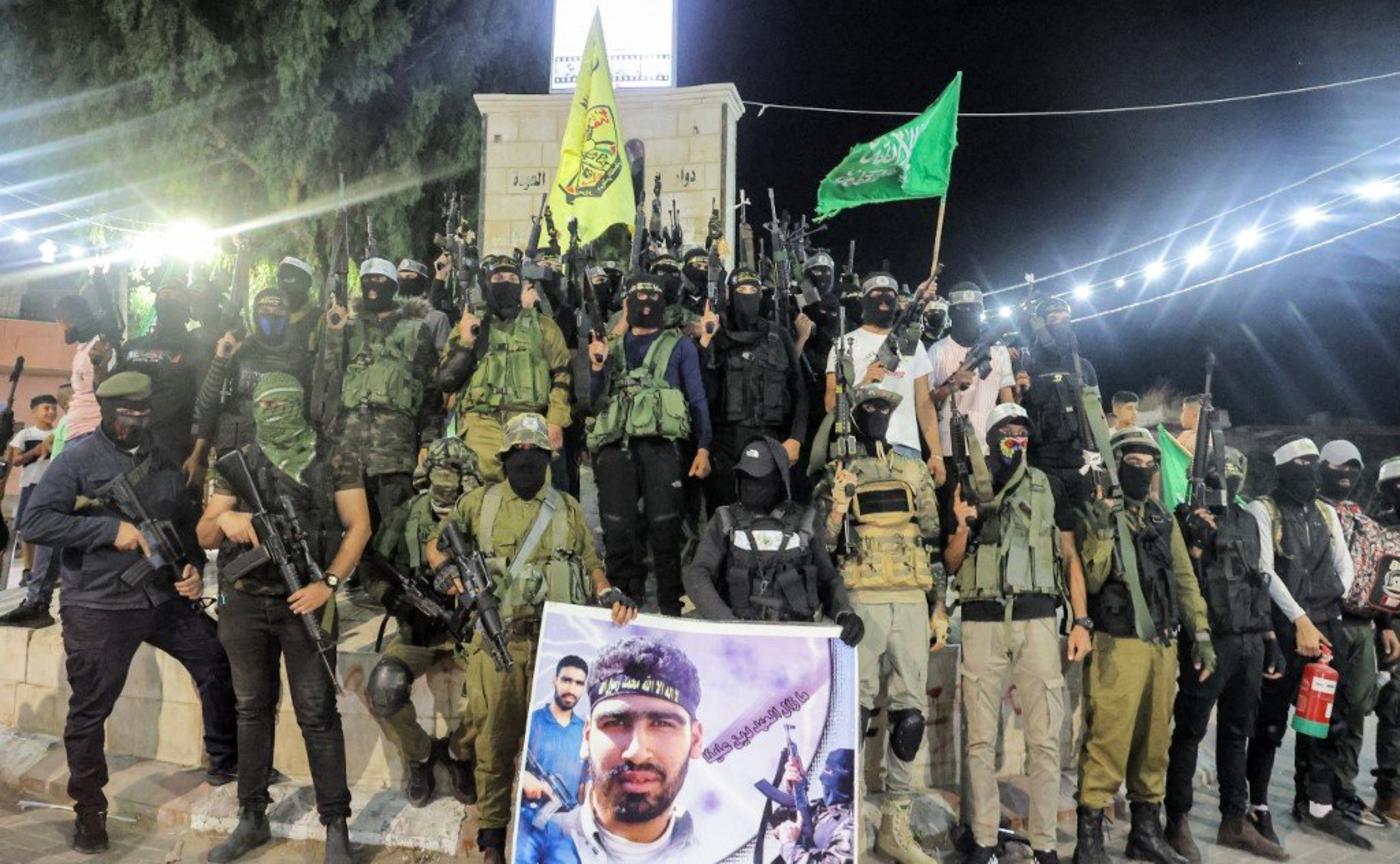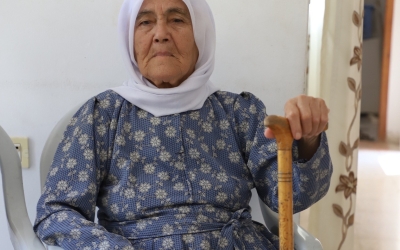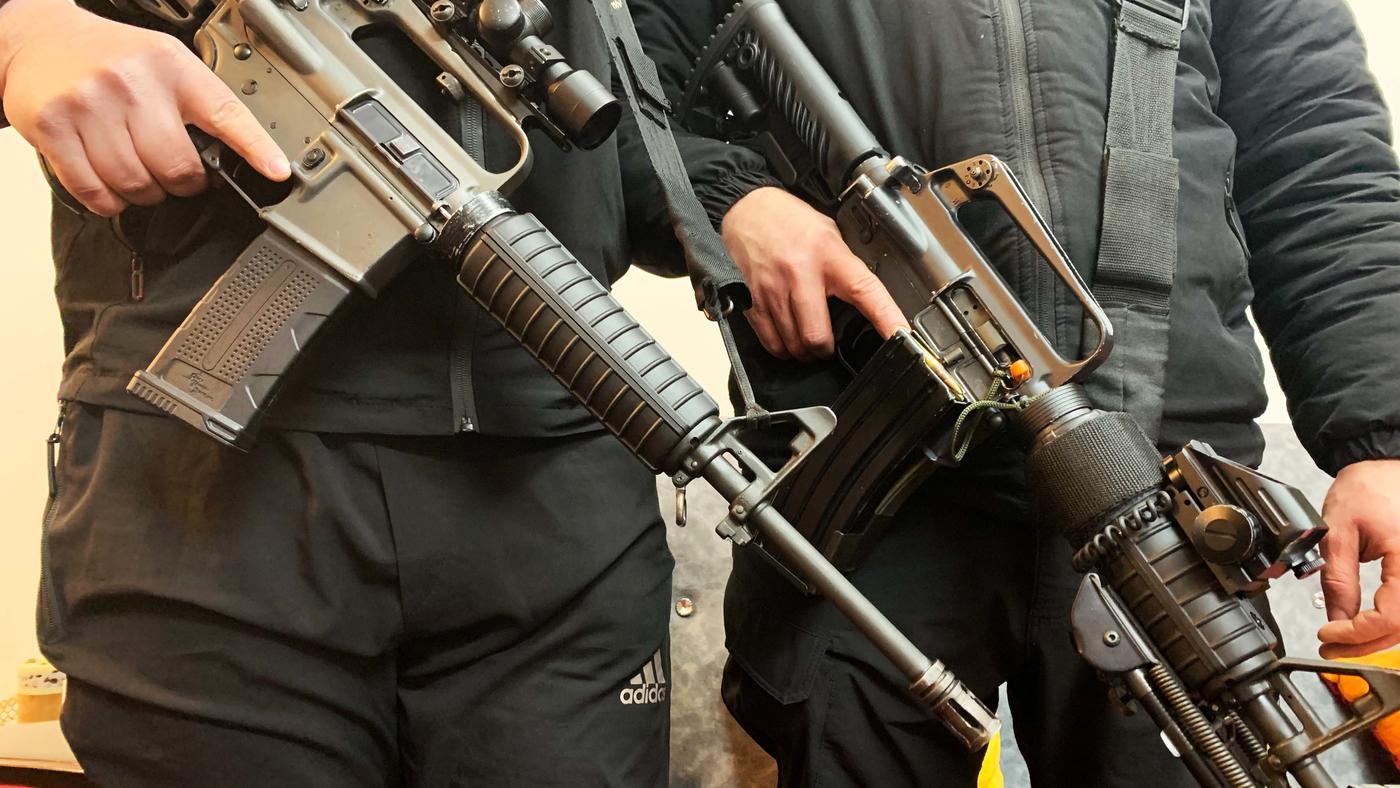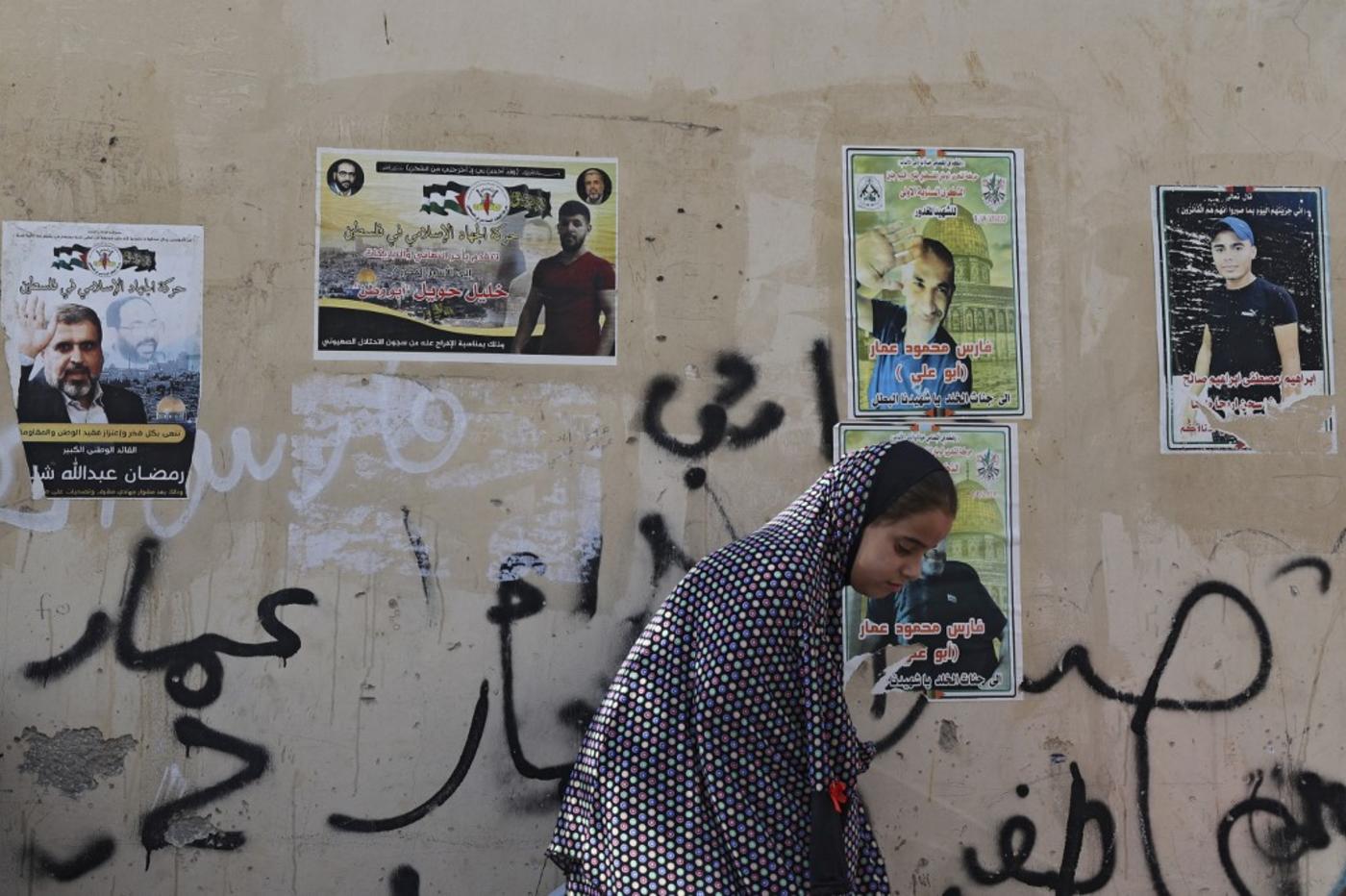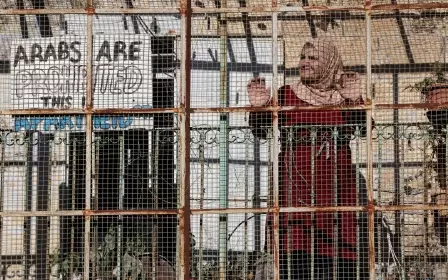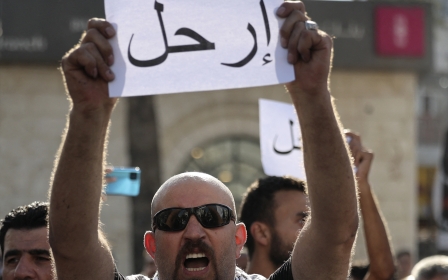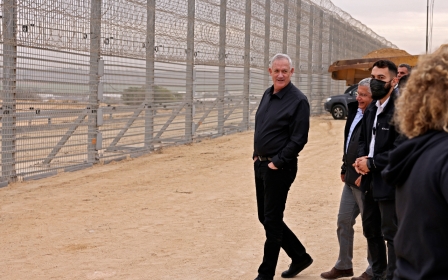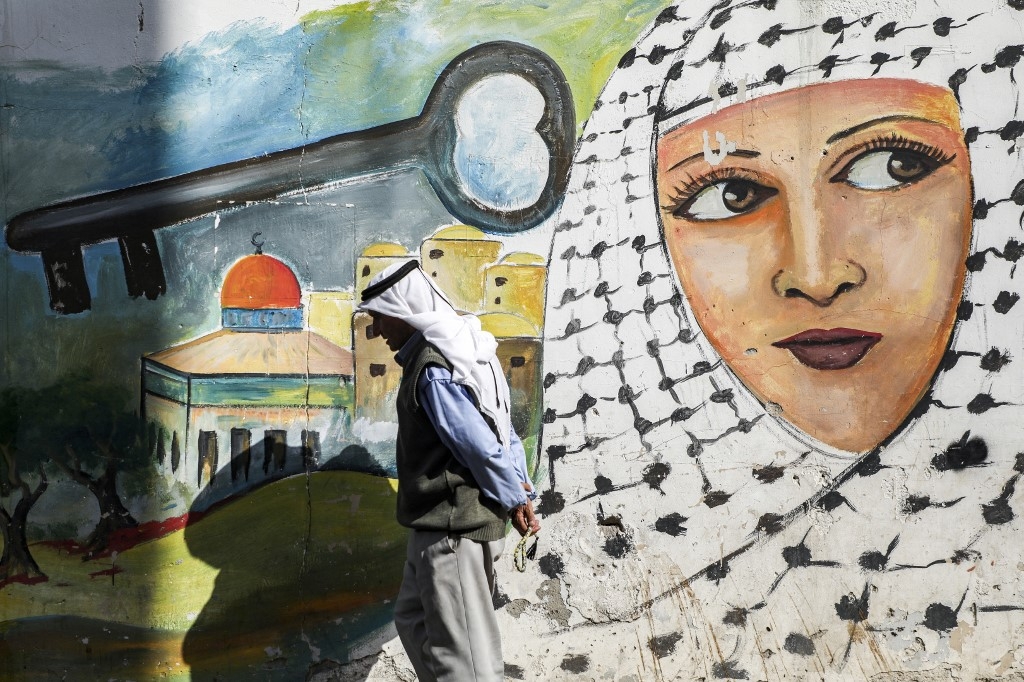
The rise of Jenin's armed resistance
Jenin, occupied Palestine - A grim silence hangs over the refugee camp. In recent months, growing tensions have left its inhabitants ever more unnerved as they keep constant watch for passers-by, fearing that at any moment, the camp will be raided by the Israeli army or the Palestinian Authority (PA) security forces.
The unease gripping the camp stems from the joint search campaign by Israel and the PA for 25 to 30 young men who are accused of engaging in acts of resistance against Israeli soldiers.
These include shootings at checkpoints near Jenin in the occupied West Bank, engaging in armed conflict with the army during its raids on the city and the notable emergence of an armed presence in the camp, especially since the 2021 May uprising.
The wanted men do not go out during the day and move about at night only when necessary.
New MEE newsletter: Jerusalem Dispatch
Sign up to get the latest insights and analysis on Israel-Palestine, alongside Turkey Unpacked and other MEE newsletters
They do not dare leave the camp, which has served as their safe haven ever since the search began, and many of them fear assassination or incarceration with heavy sentences.
Others fear abuse in PA-run prisons, with reports of torture in these institutions continuing to appear.
Middle East Eye spoke to three of the Jenin camp's wanted men, all members of al-Quds Brigades (Saraya al-Quds), the military wing of the Islamic Jihad movement.
The three men wanted to meet at night and refused to show their faces or reveal their names, so MEE has given them pseudonyms.
Salman, a Jenin native in his early 20s and one of the most wanted men, says he has not left the camp since an Israeli special forces unit raided his workplace on the outskirts of the city in search of him last year.
He received a call from the Shin Bet, Israel's internal intelligence service, six months ago, threatening him with arrest and instructing him to turn himself in.
“The Shin Bet knows that I won’t turn myself in and will not surrender,” he says. “I also won’t give them the chance to arrest me, which is why I’ve limited myself to the camp, and haven’t left it ever since.”
Armed men like Salman have fortified themselves inside the camp as a crackdown by the PA and Israel to hunt them down grows. Frustration with the PA is boiling over, with locals accusing the authority of using excessive and abusive force to bring the camp under its grip.
Masked armed men
The Jenin camp, which lies at the heart of the city located in the northern region of the West Bank, is half a square kilometre in size and home to 13,000 refugees.
The camp was established to house those expelled from their villages in 1948 by Zionist militia during the Nakba, or catastrophe, the war that paved the way for Israel’s creation and forcibly displaced more than 750,000 native Palestinians.
The camp is no stranger to violence, with a long history of confrontations with Israel that peaked in 2002 during the second Intifada, when a 10-day military campaign by Israel laid waste to it.
Direct confrontations have been kept to a minimum since, but the violence in May last year prompted by Israeli raids on al-Aqsa Mosque and attempts to expel Palestinian families from occupied East Jerusalem, seemed to breathe new life into armed resistance in Jenin.
On more than one occasion, masked armed man dressed in black, belonging to different factions including Fatah, Hamas and Islamic Jihad were seen parading in the camp streets whenever tensions flared up.
Their presence was particularly noticeable after six Palestinian prisoners, all hailing from Jenin, escaped from the maximum-security Israeli prison of Gilboa in September, including well-known resistance figure Zakaria Zubeidi.
Before they were eventually recaptured, during the week that the six men were on the run, tensions were high in Jenin. Many feared that the return of the escapees to the camp could prompt Israel into military action and lead to open clashes.
The camp's armed fighters were quick to show their willingness to help the escaped prisoners. Some carried out shootings at nearby Israeli checkpoints. Others held open military rallies vowing revenge if anything were to happen to the six men.
“We as resistance fighters were ready to die protecting the six prisoners and to provide them with safe refuge… but circumstances led them elsewhere,” Salman told MEE.
Since then, things have not been the same in Jenin. Israeli incitement against the camp has gone up, Salman says, which he believes is a sign of plans to target it again.
“Israel started to repeat its description of the camp as a wasp's nest, while the PA described the resistance in the camp as chaos and anarchy, nothing more than outlaws. This entire discourse aims to hunt down the fighters in the camp and kill them,” he said.
Fighters like Salman see themselves as an extension of the fighters who defended the camp during the 2002 battle. To them, Israeli raids on the camp, which have gone up considerably in the past year, cross a red line and must be responded to.
In June, a firefight between the army and local gunmen left three people dead, including Jamil al-Amuri, a member of al-Quds Brigades, and two PA officers. Another violent raid occurred in August, which led to fierce clashes in which four Palestinians were killed by the army.
Crackdown on arms
At the entrance to the Jenin refugee camp, flags of different Palestinian groups are placed atop the figure of a key symbolising the right of return. Posters of martyrs and prisoners are plastered all over, and at the very centre of the camp is a towering board adorned with the photographs of those killed in recent Israeli raids.
On our way to meet the three fighters, the posters can be spotted deep into the camp's far flung alleys, while slogans of the resistance and murals decorate most of the walls. It was then that the fighters emerged carrying their M16 assault rifles, ready for any unexpected confrontation.
Basel and Tamer (not their real names) are in their 20s, and have been on Israel's wanted list the longest. They have been on a list of 12 wanted men for 10 months, they said. The list included al-Amuri, killed by the Israeli army in June. They are always on the move, never staying in the same house twice. Now, more than ever, their movements require a greater degree of stealth, they said.
“Many houses in the camp welcome us and invite us to come sleep in their homes,” Basel told MEE. “But we fear for their safety and do not want to put them in jeopardy.”
In late December, the Israeli armed forces chief of staff Aviv Kochavi said in an interview with Channel 12 that Israel was on the cusp of launching a major operation in Jenin three months earlier, before they called the PA into action.
Kochavi said Israel “encouraged the PA security forces through regular security coordination, and [the PA forces] were the ones to go into Jenin, confiscate arms, and arrest many activists.”
The PA security forces have indeed implemented a security crackdown in the last three months, which has included the arrest of a number of camp residents and the harassment of others with threats and summons. All this has added to the already simmering anger of the camp residents and the Jenin governorate towards the PA.
But fighters like Basel are still on the run, which makes him believe that a big Israeli raid is drawing near, considering that the PA has failed to gain full control of the camp up until now.
Tamer, who sat beside Basel cradling his weapon, insists their fight is not against the PA. “The PA wants us to engage fighters to fire at them, but… the compass of our weapons remains ever pointed towards the occupation, and at no one else,” said Tamer, who spent several years in Israeli prison.
Pressure on men like Tamer is growing to hand over their weapons, but he says there is little faith that their lives would not be put in danger or they would be subjected to torture if they were to cooperate with the PA security forces.
The weapons the fighters carry, mostly lightweight assault rifles, were acquired through their own personal funds, the two men told MEE. Another reason that makes the idea of laying down arms seem like an impossibility to them.
“I worked very hard for an entire year and a half to be able to purchase my weapon,” Basel said. “These weapons are for the defence of the camp, and they will not fall from our hands.”
The PA has insisted the security campaign in Jenin does not target resistance fighters who engage Israel, but rather aims to stamp out “thugs” who operate outside the law.
Akram Rajoub, the governor of Jenin, said in November that the PA’s recent security effort aims to “impose the rule of law” and is concerned with what he calls "fugitives".
“The security apparatus has already started addressing the recent issue of arms, and we are going to root it out,” Rajoub told local radio.
“Those who incite will be arrested before those who fired the shots. We will not let the dignity of our security personnel be degraded by these thugs, and we will hunt them down and arrest them… what is happening in Jenin is illegal, and an affront to our security personnel.”
'The PA wants us to engage fighters to fire at them, but… the compass of our weapons remains ever pointed towards the occupation, and at no one else'
- Tamer, Palestinian gunman
Rajoub’s comments were rejected by Palestinian factions in the camp, who saw them as an attempt to demonise resistance. Groups say they are ready to work with the PA to stamp out any signs of lawlessness in the camp, but opposing the resistance is “a red line”.
“Israel is using the PA to suppress the resistance in Jenin, and it is aimed to cause internal strife and bloodshed, and is also aimed at delegitimising the PA in the eyes of its people, a fact which the PA leadership ought to pay attention to,” Bassam al-Sadi, a leading Islamic Jihad figure in Jenin, told MEE.
Even factions within Fatah, the PA's de facto ruling party, oppose the authority's security approach.
Shami al-Shami, former member of Palestinian Legislative Council (PLC) and a senior Fatah figure in Jenin, says Israel’s increasing violence is what fuels nationalist sentiment and further encourages young people to escalate resistance activities.
Al-Shami expects the pent-up tensions between the Palestinian Authority and the camp will remain so long as the PA's heavy-handed approach remains the same.
“We do not call for fighting the PA or attacking it, but we do call on the PA to curb its actions towards the people of the camp, and to correct its mistakes,” al-Shami said.
Security reshuffle
Anger against the Palestinian Authority spiked in November, after a widely-attended funeral for Hamas leader Wasfi Qabaha, who died due to coronavirus complications, drew the ire of Ramallah.
A reshuffle in the ranks of the security forces seemed to lead to a crackdown on those attending the funeral, especially those who came armed.
“The Palestinian intelligence has made a list of 20 wanted camp residents, two of them minors,” Salman said. “All of them are also wanted by the Israeli army… this was a pivotal moment in the hunt for the resistance, and has led to the escalation of tensions between the camp and the PA.”
One of those arrested during the campaign was Muhammad Azmi Husseiniyyeh.
His brother Eyad Husseiniyyeh, standing by his vegetable stall in the Jenin produce market where he worked, told MEE that Muhammad was arrested for allegedly receiving a call from Hamas leader Ismail Haniyeh.
Haniyeh phoned Muhammad in October to offer his condolences following the death of his nephew Amjad Husseiniyyeh during the August raid.
Muhammad, 33, was transferred from the security forces headquarters in Jenin to Juneid Prison in Nablus, and then to the intelligence headquarters in Ramallah, where he was subjected to intensive interrogation for 40 days.
Muhammad was put in stress positions and hung in chains for 25 days during his interrogations, Eyad said.
“All accusations against Muhammad relate to resisting the occupation’s army, in addition to receiving a call from Ismail Haniyeh… and Muhammad did not confess to any of these accusations.”
The Husseiniyyeh family has received several promises that Muhammad would be returned to Jenin and presented before the court, Eyad told MEE, but none of these promises have come to pass, which is what led him to start a hunger strike on 10 December.
On 7 January, things took a turn for the worse in Jenin. Three young men from the camp, including 18 year-old Muhammad Zubeidi, son of Gilboa escapee Zakaria Zubeidi, were assaulted by PA security officers.
A video documenting the incident went viral, and tensions rose yet again. Heavy shooting at the PA security forces headquarters followed, as well as the Jenin Muqata’a, which represents the sovereign seat of the PA in the area.
Muhammad’s uncle, Jibreel Zubeidi, told MEE that this was the third time in two months that the PA had harassed his nephew.
“If he were to make a traffic violation, then he should be punished like anyone else with a fine, not with beatings and abuse,” Jibreel said.
The PA accused Muhammad of possessing drugs, a charge the family rejected as slander, as no evidence was presented.
Since the 2019 arrest of Zakaria Zubeidi, who was once commander of the military wing of Fatah's al-Aqsa Martyrs' Brigades, Muhammad has assumed primary responsibility for his family.
“Muhammad is responsible for his mother, his siblings, and everything else at home,” his uncle Jibreel said.
“He’s also responsible for taking his family back and forth to his father’s court dates… He’s had so many responsibilities that he hasn't been able to live out his childhood.”
The high school student also suffers from bullet wounds he sustained during clashes with the Israeli army near the Jalameh military checkpoint eight months ago. Some shrapnel from the bullets remains lodged in his head.
“We are worried for Zakaria’s children, and always feel that they have a target on their backs. We’ve tried everything to protect them… but what the PA has done is unprecedented by attacking Muhammad,” Jibreel told MEE.
When Muhammad told PA officers who they were assaulting, they would only beat him more, the family said, suggesting that the PA were deliberately targeting him to send a message to the camp's residents.
'What the PA has done is unprecedented by attacking Muhammad'
- Jibreel Zubeidi, uncle of Palestinian assaulted by PA
Palestine's Independent Commission for Human Rights (ICHR) called on the interior ministry and the police force to conduct an investigation into the incident and to review the way in which arrests are made in order to protect the rights of prisoners and enforce the rule of law.
A statement put out by the ICHR on 8 January said that “some security forces personnel repeatedly engaged in violations throughout the arrest, which requires a full review of the procedures for enforcing accountability for violators.”
The incident and the subsequent shooting marked a turning point in the camp, which seemed to have grown ever more fed up with the PA’s security clampdown.
“The video clips have riled up Jenin refugee camp and all of Palestine, and the reaction we’ve seen is not because Muhammad is Zakaria’s son,” Jibreel said, “but because it is a violent attack with beatings and electric shock carried out arbitrarily against young men.”
This article is available in French on Middle East Eye French edition.
Middle East Eye delivers independent and unrivalled coverage and analysis of the Middle East, North Africa and beyond. To learn more about republishing this content and the associated fees, please fill out this form. More about MEE can be found here.


